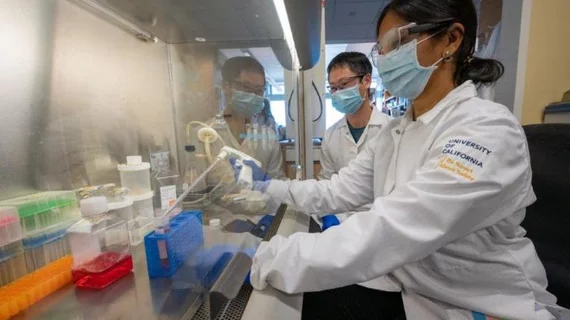New discovery could make stem cells much more effective at repairing heart damage
Researchers have been attempting to repair damaged heart tissue with stem cells for years, but severe inflammation often makes it impossible for much change to actually occur. A new study published in Stem Cells Translational Medicine, however, suggests that a cardiologist-led team has identified a potential solution to this problem—one that could be a literal life-saver for heart failure patients.
The group identified an enzyme that has already been connected to inflammation in the lungs and joints—soluble epoxide hydrolase (sEH)—and was able to effectively block it from overwhelming the stem cells. Their experiments with mice have been a success—test subjects treated with an sEH inhibitor and human-induced pluripotent stem cells had the best outcomes—and it is possible that his work could help repair damage done to a patient’s heart following a myocardial infarction.
“We think we’ve found a way to quiet that inflammatory environment, giving stem cells a chance to survive and do the healing work we know they can do,” lead author Padmini Sirish, PhD, division of cardiovascular medicine at the University of California, Davis, said in a statement.
Senior author Nipavan Chiamvimonvat, MD, a cardiologist at UC Davis who led the research team, noted in the same statement that she hopes to launch human clinical trials based on her team’s findings.
“It is my dream as a clinician and scientist to take the problems I see in the clinic to the lab for solutions that benefit our patients,” she said.
The full analysis from Stem Cells Translational Medicine is available here.

